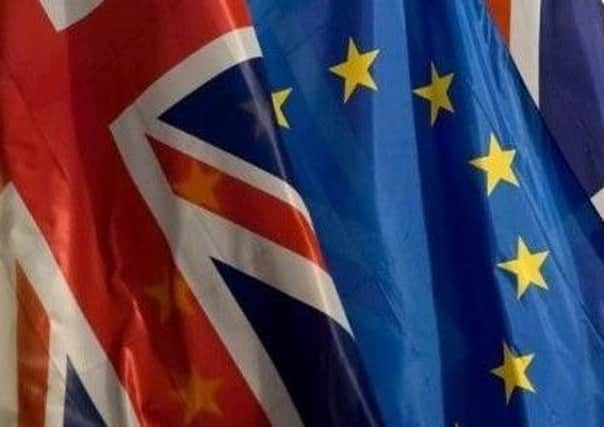Out-of depth May in thrall to authoritarian Tory right


The Vote Leave campaign made much play before the referendum of the principle of restoring Parliamentary sovereignty. Since the referendum was won they have argued, in contradiction to that principle, that neither chamber of Parliament can claim a significant role in scrutinising the Government’s changing interpretation of what leaving the European Union means.
‘The will of the people’, the Daily Mail insists, requires that we now accept whatever the Government puts forward. So we have slipped from Parliamentary democracy to direct democracy, in which an authoritarian political leader is allowed to interpret occasional expressions of the popular will without a continuing process of criticism.
Advertisement
Hide AdAdvertisement
Hide AdNigel Farage’s French lodger, about whom the Press showed much recent interest, is the director of the Institute for Direct Democracy in Europe – an institute supported by a group of hard right nationalist parties across the EU. Direct Democracy, contrary to the compromises and reasoned arguments of parliamentary democracy, is means popular fears and emotions are exploited by populist leaders to bully opposition and target foreigners and minorities. This Conservative Government should not slip down that road, which would betray the best of the Conservative tradition.
It’s not that I think our current Prime Minister is comparable to Donald Trump or Marine le Pen; but I do think she has been captured by the authoritarian right of her party, and the almost anti-democratic hysteria of the Mail. She’s slipped into resisting reasoned and critical debate, when we face a fundamental change in the UK’s direction. Those of us who still believe in Parliamentary democracy must therefore insist that this Chamber has an important part to play.
Ministers spent a good deal of time and effort examining the costs and benefits of EU membership sector by sector under the coalition government, at the insistence of the Conservative side. Some 32 papers on the ‘balance of competences’ between the UK and the EU were carefully negotiated, over 24 months, on the basis of widespread consultation with stakeholders and experts in each sector – and the overwhelming consensus was that in most respects the current balance took UK national interests well into account.
Sadly, the response from No 10 was to bury the exercise as deeply as it could, for fear of enraging its Europhobe right. But this Prime Minister cannot afford to bury sectional national interests and the impact of Brexit on them as negotiations move forward. If, at the end of the process, the gap between today’s optimistic promises and the hard compromises of the final package is too wide, the public will blame the Conservatives for the result.
Advertisement
Hide AdAdvertisement
Hide AdConservatives should therefore recognise that it’s in their own enlightened interest to accept the amendment tabled by Lord Newby and others, which requires a resolution of both Houses on the final package, and a national referendum on the terms agreed. It’s also in their enlightened interest to inform Parliament and the public of what it is realistically possible to achieve as they move forward, rather than raising illusory hopes now and attracting outrage when they fall short later.
The recent White Paper still suggests that Britain can have its cake and eat it in sector after sector. It states ‘the Government will make no attempt to remain in the EU by the back door’ – but the White Paper nevertheless lists a long series of areas where it is confident that the UK can retain close co-operation from scientific research to aviation, medicines, food safety, chemicals and financial services. That’s going to be very difficult if we are entirely outside.
It pledges to maintain close co-operation on internal security, intelligence and crime, but without accepting judicial oversight of such sensitive issues. That may be impossible.
In foreign policy, the White Paper repeats the meaningless phrase that we are ‘Leaving the EU, not leaving Europe’ and suggests that we will continue to participate in EU military and civilian missions ‘across the globe’ – through the EU’s back door, no doubt. Boris Johnson, meanwhile, is promising in India and the Gulf that an increasing proportion of our Armed Forces will in future be deployed East of Suez, rather than in Europe.
Advertisement
Hide AdAdvertisement
Hide AdThe PM looks out of her depth. The Foreign Secretary is absent from Europe most of the time. None of us are sure what the Secretary of State for International Trade (Liam Fox) is doing. The Department for Exiting the EU, headed by David Davis, is understaffed and unprepared. The Government has over-enthusiastically embraced the new US administration, apparently out of desperation after its failure to cultivate good relationships with the major European governments with whom we are about to negotiate EU exit.
Lord Wallace of Saltaire is a Lib Dem peer who is due to speak in the House of Lords debate on Brexit.